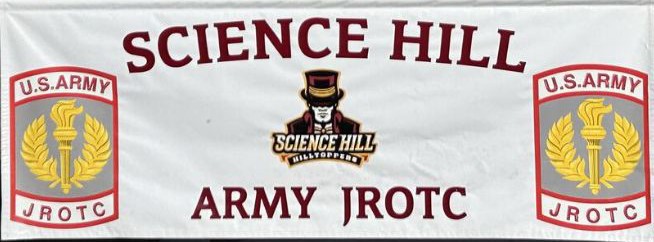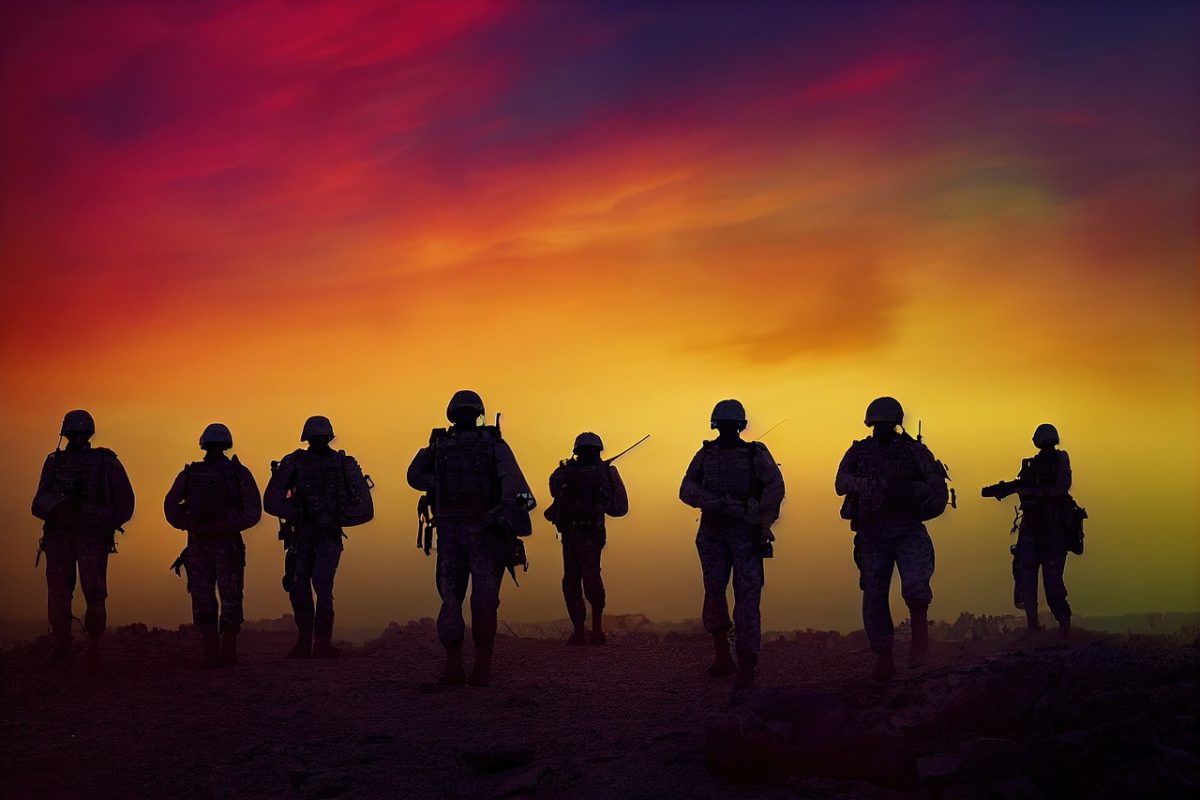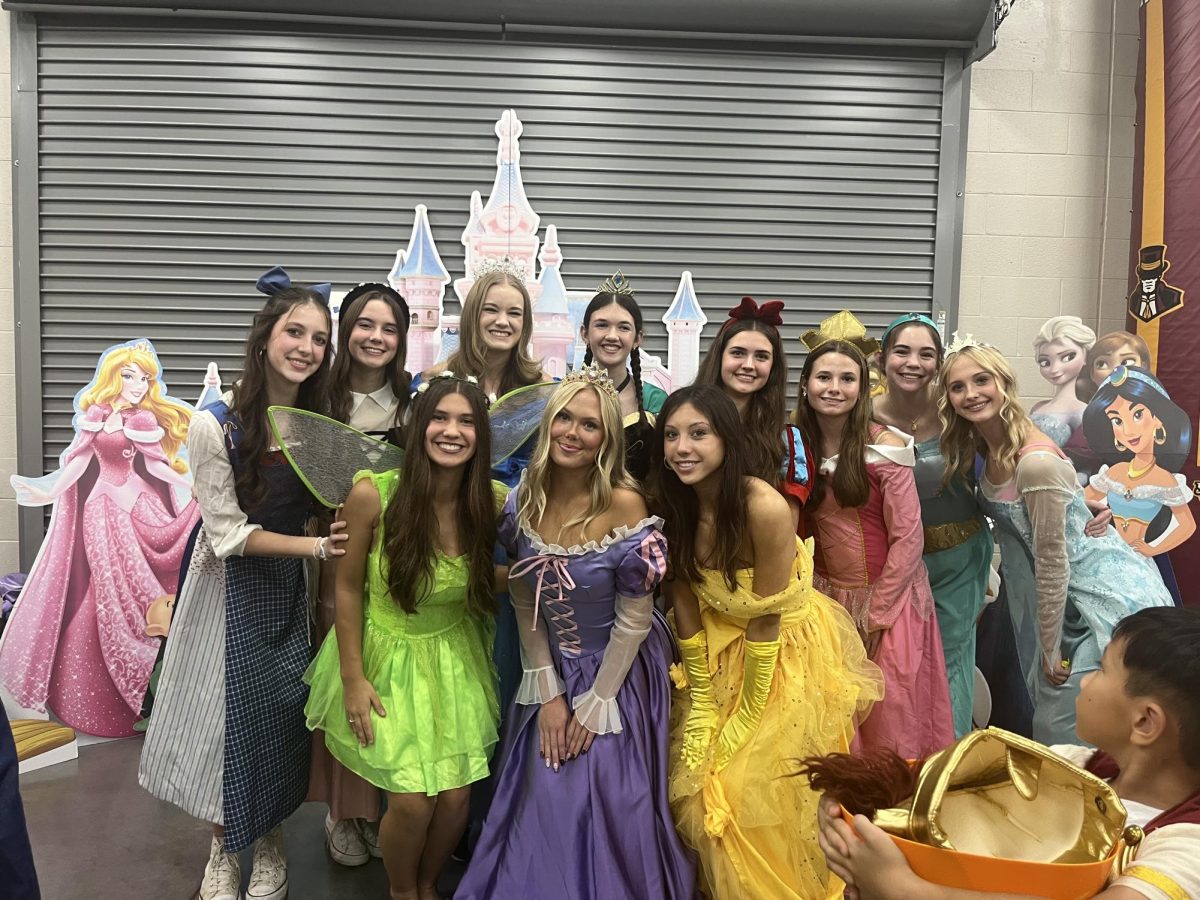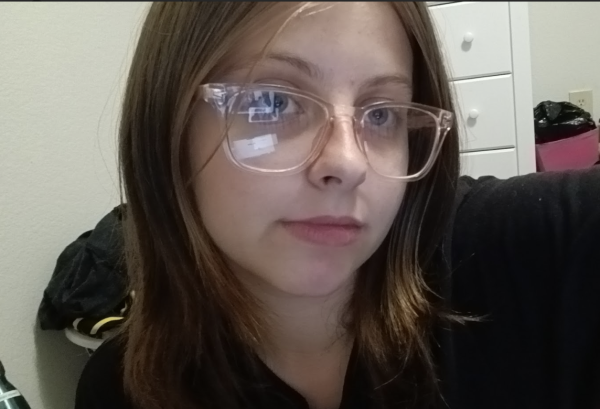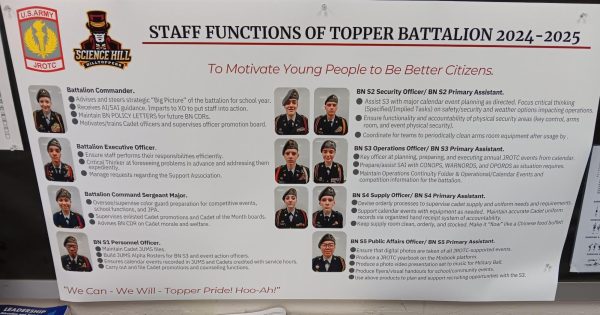
JROTC is a program we have here at Science Hill, our JROTC is based on the army branch of the military (there are more branches of JROTC but Science Hill offers the army branch). JROTC stands for Junior Reserve Officers’ Training Corps. It teaches the values of good citizenship and is a basic introduction to the U.S. Army. As ROTC is a class that offers extracurricular activities and groups, JROTC is more than school work. That is the simple explanation of what JROTC is, the next portion of this article will be about what other cadets have said about this program and more about what JROTC.
What Activities JROTC Offers
Antonia Swann, first-year cadet, and Bravo (2nd-period class) company’s underclassmen current class leader said this when I asked her what we did in JROTC. “On Mondays and Fridays, we do PT, where we workout with both classes. Tuesdays and Thursdays are academic days where we sit in the classroom and learn about anything our instructors may need to tell us. And then Wednesdays are uniform days where we wear our uniform and we mostly practice whatever we have been working hard on.”
PT is Physical Training, which, as Cadet Swann said, we take part in on Mondays and Fridays. Swann also touched on the two classes: first-year cadets and upperclassmen. Our upperclassmen personally plan and execute our PT days, and selected first-year cadets assist them on Mondays and Fridays in a certain order.
There are various activities that cadets in JROTC can participate in, which can range from teams like Color Guard, fitness, and marksmanship, to memorial services and projects.
What We Want YOU To Know
There are many things cadets in the program now and former cadets from the program would like to say to interested readers.
Former cadet David Pusatere, Alpha (1st-period class) Company’s former class leader, and current football player for Science Hill responded with this when asked what he wanted people to know about the JROTC program. “It is definitely good to better yourself. You can learn physically and learn a lot about you know the way our country works and how everything just flows.”
Not just any cadet, but Athena Cook, the current Battalion Commander said, “It’s not hard, but it takes discipline, you know. And that’s gonna sound kind of dumb but you do need to workout, on Mondays and Fridays, and we have regular assignments. And we wear uniforms and we do have standards that you need to uphold” when asked the same question.
Speaking of Battalion Commanders, last year’s Battalion Commander, Bradley Davis replied with this, “Some people make it look bad, it is not all bad. There are a lot of good things about it. The uniform is not as bad as it looks. But, everybody should try it, because you learn a lot of life lessons that you can use outside of school and high school, from the class.”
“Something I want them to know is that this program is definitely not a joke, it is to be taken seriously. Even if you don’t want to do the military, it will help direct you in your life. It’s not a joke” said cadet Swann.
Last but not least, Jonah Wright, current Company Commander of Bravo company said, “JROTC isn’t just military oriented, the program also teaches you important communication skills that can be applied to most situations. An example of this is learning to speak up for yourself. The ability to confidently ask about how others perceive you and your skills will always allow you to adapt and improve yourself.”
What Cadets Enjoy
Here are some activities that cadets enjoy!
“Definitely the pt, and the comradery of having people to be with the whole year, and kind of going with them and seeing how they develop,” said David Pusatere.
“Honestly, the people, I think the people are really fun, they are kind of (note to self: edit later), but they also know when and where to be serious.” Miss. Cook stated.
Upperclassman instructor and retired Colonel Mestan, known as Micheal Mestan as a teacher, told me this was what he enjoyed the most about JROTC, “In JROTC, we are always doing something different, there is always something different to do”
Underclassman instructor, James Byington, retired First Sergeant enjoys “working with the youth.”
The Most Challenging Part
What is the most challenging part about JROTC? I cannot answer that question because what may be hard for me, is completely opinionated. There is no correct or best answer but here is what some cadets and our instructors have to say about this topic.
Micheal Mestan states, “I think the most challenging thing about JROTC is making that transition from being an adolescent to taking on more adult-like qualities and values and responsibility. Because you guys are closer to adulthood than childhood. We are trying to get you to start acknowledging that to get respect and opportunities from adults, I need to start conducting myself in a way that adults want to hire me. They want me to be on their team because they don’t see me as a liability. They see me as an assistant that can help them accomplish their job, task, or mission.”
Bradley Davis says, “Definitely adapting, when I started JROTC, I had a thick head. I had to figure that out because I wanted to be a leader in the program, and I had to figure out how to lead and how to take advice from other people.”
“Probably getting young people to realize that there are things in this world bigger than them and to actually want to be a part of a team” James Byington stated
“The biggest struggle I see in the program is being able to recognize the value of others’ criticism. Many people struggle to acknowledge that someone’s criticism and advice comes from experience and having spent the same time learning it themselves.” Jonah Wright exclaimed.
Who Should Join?
There are many answers to this question, I personally think everyone should try it out.
Micheal Mestan thinks “every 9th or 10th grader should join JROTC for one year because they are going to be exposed to things that they may not be aware about themselves.”
“Anybody who is motivated and willing to do the work” is who James Byington thinks should join.
How Can JROTC Benefit You?
“Well, the people in it, it benefits them because they learn the team concept, they learn to do things together, they learn to cooperate, and problem solve. And, then overall when they can do that now they can help the community.” this is what James Byington thinks on that matter.
Jonah Wright said, “JROTC is highly active in the local community. Events such as Color Guards, Memorial Services, and various other service projects all work to provide a professional tone while also providing manpower to complete various tasks.”
Cadet Swann also states, “It can benefit others by building discipline and direction in your life, not just for the military if that’s what they’re planning to go to. But even if this is just their only year they’re gonna be in it, it can help them the rest of their lives.
JROTC can be used as a tool, there are many benefits to joining.
Advice For Future Cadets
JROTC cadets and instructor Micheal Mestan have advice for future cadets or those interested in our program.
Micheal Mestan’s opinion on this is, “My advice for future cadets would be have an open mind and it’s a big world out there, read a lot, explore a lot, engage people, ask questions because by doing so, it’s helping you make a short list of what are things that I’m interested in and passionate about that I might be able to turn into a possible job or career where I can make money doing something I enjoy.”
Bradley Davis’ advice is, “Definitely give it a shot. Try out teams.” he goes on to say, “Find what fits for you, and whatever fits the best. Stick with it, because it will give you a lot of help, it will help you make friends, and some of those friends you’ll have for a lifetime.”
“Advice I have for future cadets is listen to what anybody has to say to you, whether they are above or not.” Antonia Swann said.
Jonah Wright stated, “Try everything you can, you have 4 years to learn and find something you enjoy and make the most of. Everything you do can become how you succeed in life.”
So, What Is JROTC?
JROTC is not there to recruit; instead, it is there to introduce you to what the military could look like for you. It is a program and community of people who work together in a military environment and learn skills and lessons from doing so.

